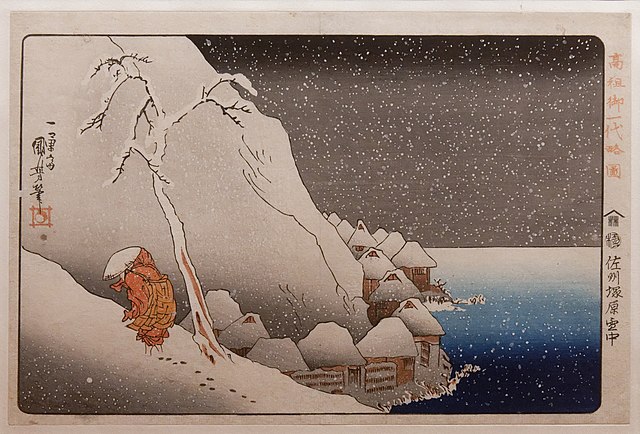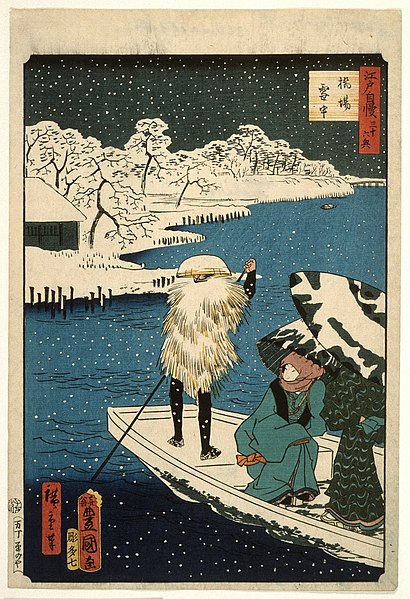
Thammasat University students interested in Japan studies, comparative literature, Asian culture, and related subjects may find it useful to participate in a free 22 November Zoom webinar on Literature in Heisei Japan.
The event, on Wednesday, 22 November 2023 at 10:30am Bangkok time, is presented by the Sophia University Institute of Comparative Culture, Tokyo, Japan.
The TU Library collection includes several books about different aspects of modern literature in Japan.
Students are invited to register at this link:
The Heisei era in Japanese history corresponded to the reign of Emperor Emeritus Akihito from January 1989 until his abdication in April 2019.
Speakers at the event will include professors of literature from the Faculty of Liberal Arts, Sophia University: Dr. Shion Kono, Dr. Matthew Strecher, Dr. Mathew Thompson, and Dr. Angela Yiu.
According to one researcher, the name Heisei was taken from two Chinese history and philosophy books, with the intended significance of peace everywhere.
In the Heisei era, Haruki Murakami achieved international fame.
The TU Library collection includes many books by and about Haruki Murakami.
Japan’s bestselling living novelist, he began writing at age 30.
His mixture of realistic and dreamlike narratives has appealed to many readers worldwide.
Published in 1987, his novel Norwegian Wood is a memory of young love.
The protagonist Toru Watanabe hears the Beatles song Norwegian Wood as a plane lands on a runway and he recalls his college years and romances.
In another novel, The Wind-Up Bird Chronicle, the hero Toru Okada is looking for a runaway cat.
His wife is also missing. As many strange things happen, he concludes:
The best way to think about reality is to get as far away from it as possible.
The Wind-Up Bird Chronicle has elements of Japanese history and mystery stories, in a humorous tone.
In the short story Sleep, from the collection The Elephant Vanishes, a loyal wife suffers from insomnia that is affected by oppression against women in society.
Murakami’s memoir, What I Talk About When I Talk About Running, states that he has learned about writing by going running daily.
He compares writing to running marathons and recommends that other writers adopt a standard work routine.
Murakami’s Kafka on the Shore is story told by a 15-year-old runaway, Kafka Tamura.
Kafka finds a job in a library in a small coastal town.
Meanwhile, an older man who lost his childhood memories at the end of the Second World War, has developed the skill of having conversations with cats.

Murakami has revealed how he started as a writer:
For several months, I operated on pure guesswork, adopting what seemed to be a likely style and running with it, but when I read through the result I was far from impressed. “Good grief,” I moaned, “this is hopeless.” What I had written seemed to fulfil the formal requirements of a novel, yet it was rather boring and, as a whole, left me cold.
In retrospect, it was only natural that I was unable to produce a good novel. It was a big mistake to assume that a guy like me who had never written anything in his life could spin out something brilliant right off the bat. Maybe it had been a mistake to try to write something “novelistic” in the first place. “Give up trying to create something sophisticated,” I told myself. “Why not forget all those prescriptive ideas about ‘the novel’ and ‘literature’ and set down your feelings and thoughts as they come to you, freely, in a way that you like?”
While it was easy to talk about setting down one’s impressions freely, though, actually doing it wasn’t that simple. To make a fresh start, the first thing I had to do was ditch my stack of manuscript paper and my fountain pen. As long as they were sitting in front of me, what I was doing felt like “literature”. In their place, I pulled out my old Olivetti typewriter from the closet. Then, as an experiment, I decided to write the opening of my novel in English. What the hell, I figured. If I was going to do something unorthodox, why not go all the way?
Needless to say, my ability in English composition didn’t amount to much. My vocabulary was severely limited, as was my command of English syntax. I could only write in short, simple sentences. Which meant that, however complex and numerous the thoughts running around in my head, I couldn’t even attempt to set them down as they came to me. The language had to be simple, my ideas expressed in an easy-to-understand way, the descriptions stripped of all extraneous fat, the form made compact, and everything arranged to fit a container of limited size. The result was a rough, uncultivated kind of prose. As I struggled to express myself in that fashion, however, a distinctive rhythm began to take shape.
I was born and raised in Japan, so the vocabulary and patterns of Japanese – in short, the language’s contents – had filled the system that was me to bursting. When I sought to put my thoughts and feelings into words, those contents began to swirl like mad, and the system sometimes crashed. Writing in a foreign language, with all the limitations that it entailed, removed this obstacle. It also led me to the realisation that I could express my thoughts and feelings with a limited set of words and grammatical structures, as long as I combined them effectively and linked them together in a skilful manner. Ultimately, I learned that there was no need for a lot of difficult words – I didn’t have to try to impress people with beautiful turns of phrase. […]
Another leading author of Heisei Japan was Kenzaburō Ōe, who was awarded the 1994 Nobel Prize in Literature for creating an imagined world, where life and myth condense to form a disconcerting picture of the human predicament today.
The TU Library collection also includes a number of books by Kenzaburō Ōe.
His novels, short stories and essays deal with political, social and philosophical issues, including nuclear weapons, nuclear power, social non-conformism, and existentialism.
When he was awarded the Nobel Prize, Ōe told one interviewer that his writing was fundamentally focused on the dignity of human beings.

(All images courtesy of Wikimedia Commons)
